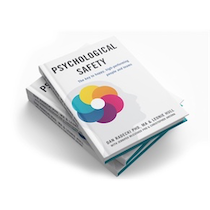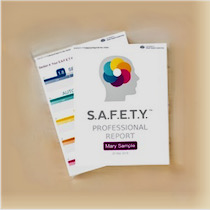Did you know that there is research being done today in the field of neuroscience that can greatly improve your leadership ability?
In this fascinating episode of The TalentGrow Show, Halelly interviews neuroscientist Dan Radecki and they dig into some of the interesting correlations between our brain’s neurological makeup and the ways we respond to different daily situations and challenges as leaders.
Learn about the Old Brain and the Higher Brain, how you can give your Higher Brain more control over your natural negativity bias, how stress affects your leadership ability, and the phenomenon of Emotional Contagion. Listen to find out how to leverage the latest findings in neuroscience to become a better leader and a better you, then share with others!
Presenters

Dr Dan Radecki
The Academy of Brain-based Leadership

Halelly Azulay
Talent Grow Show











